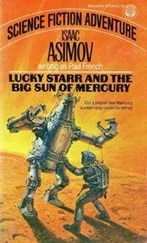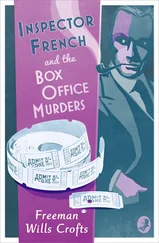Jerry Pinto - Em and the Big Hoom
Здесь есть возможность читать онлайн «Jerry Pinto - Em and the Big Hoom» весь текст электронной книги совершенно бесплатно (целиком полную версию без сокращений). В некоторых случаях можно слушать аудио, скачать через торрент в формате fb2 и присутствует краткое содержание. Год выпуска: 2014, Издательство: Penguin Books, Жанр: Современная проза, на английском языке. Описание произведения, (предисловие) а так же отзывы посетителей доступны на портале библиотеки ЛибКат.
- Название:Em and the Big Hoom
- Автор:
- Издательство:Penguin Books
- Жанр:
- Год:2014
- ISBN:нет данных
- Рейтинг книги:3 / 5. Голосов: 1
-
Избранное:Добавить в избранное
- Отзывы:
-
Ваша оценка:
- 60
- 1
- 2
- 3
- 4
- 5
Em and the Big Hoom: краткое содержание, описание и аннотация
Предлагаем к чтению аннотацию, описание, краткое содержание или предисловие (зависит от того, что написал сам автор книги «Em and the Big Hoom»). Если вы не нашли необходимую информацию о книге — напишите в комментариях, мы постараемся отыскать её.
Em and the Big Hoom — читать онлайн бесплатно полную книгу (весь текст) целиком
Ниже представлен текст книги, разбитый по страницам. Система сохранения места последней прочитанной страницы, позволяет с удобством читать онлайн бесплатно книгу «Em and the Big Hoom», без необходимости каждый раз заново искать на чём Вы остановились. Поставьте закладку, и сможете в любой момент перейти на страницу, на которой закончили чтение.
Интервал:
Закладка:
‘The job was all right, but I was a little worried about being in a big office with adults,’ she told us.
‘Adults? Weren’t you one?’
‘Technically, I was. But I didn’t think of myself that way. All those cartoons about “Come in and take some dictation” and being chased around the desk… and I hadn’t even wanted to be an office girl.’
When Em finished her Senior Cambridge at the age of sixteen, she had thought she was going to college. She dreamt of standing at the bus stop, chattering with her friends and refusing to admit that those boys were looking. She dreamt of lectures and Milton and prosody (‘It sounded so naughty’). She dreamt of French literature. In the confines of her head, she debated whether she would wear dresses like the other Roman Catholic and Anglo-Indian girls of Byculla or whether she would follow the Coelho sisters in their khadi saris and Kolhapuri chappals — carelessly, gorgeously beautiful, incidental flowers in their hair.
She stopped dreaming when she came home with her certificate and the good wishes of her teachers.
‘Daddy will ask,’ Granny said. ‘You say no.’
Em’s mother spoke in code. She omitted almost all the important words in every sentence. She had had far too many languages drummed into her ears — first Konkani in Goa, then Burmese in Rangoon, then Bengali in wartime Calcutta, and now English, in which her child spoke and dreamed. It had taken away most of her vocabulary. She communicated through gestures, facial expressions and the assumption that everyone knew what she was talking about. It doesn’t sound likely, but it worked.
Em realized that she was being asked to say that she had no wish to go to college. She didn’t understand why. So Granny told her.
‘Where there is? You have to. I can’t. How long?’
Em understood. There was no money for college. She would have to work. Granny had scrounged and saved for too long on granddad’s modest salary — a mathematics teacher’s salary. Besides, college would take an awful lot of time.
‘She was right. Daddy did ask if I wanted to go to college,’ Em said. ‘I couldn’t say “No” because I wanted to go and I didn’t want to lie. I asked, “Where will the money come from?” I was hoping he would have an answer. A gold wristwatch that he could sell, a ruby he had smuggled in from Burma. Anything. But he only said, “That can be arranged.” And I knew it would mean taking a loan and maybe the house would go. I didn’t talk about it again, and he didn’t talk about it either.’
Instead Granny went out looking and found her a job at a school run by nuns.
‘They hired you?’ I asked.
‘How could they? I was sixteen. So the nuns told Ma they would hire Astrid instead. Astrid the Ostrich, you know?’
‘No. I don’t.’
‘You don’t remember Astrid the Ostrich? No, she must have been before your time. Astrid DeSa, poor dear, she’s dead. Died not long after she replaced me at the school — that’s what I heard. She was at the blackboard and she put her hand up to her head and coughed once. Then she threw up her lunch, right on the blackboard, and slumped. The stain is still there, they say. By the time the other teachers came, she was gone.’
‘She died with her boots on.’
‘That’s supposed to mean you died happy. Did she? I don’t know. Who can know? I would like to die with my boots on too. But what would that mean? I haven’t had any boots for a while. I don’t know that I ever had boots. I think I had booties once — booties… sounds like something you develop if you don’t wash. Or is that cooties? Spellings! I could never bear American spelling, not even when I took their dollars. For me, it was always the Queen’s English. How I longed to type “colour” at the AmConGen… that’s the American Consulate, before you ask.’
We didn’t have to ask. We knew that she worked there, after leaving ASL.
‘Why couldn’t you type it?’
‘Type what?’
‘Colour.’
‘I could type. No, I meant I couldn’t type it with a “u”. I had to do it all without “u”. And then you came along. Gosh. That’s another story.’
Conversations with Em could be like wandering in a town you had never seen before, where every path you took might change course midway and take you with it. You had to keep finding your way back to the main street in order to get anywhere.
‘So what did Astrid DeSa have to do with your job?’ I asked.
‘Oh, she had the paperwork. She had a Teacher’s Certificate. But she couldn’t work because she had had twins and there were abscesses on her nipples and she always said, “My boys drink my milk and pus and blood.” In my head, I called one Pus and the other Blood for a long time… So the nuns hired her on paper but I did the teaching.’
‘And Astrid agreed?’
‘She got twenty per cent.’
‘Of your salary?’
‘Of my salary. I got sixty per cent.’
‘And the rest?’
‘A donation to the work of Jesus.’
‘It went to the nuns?’
‘Don’t be harsh. They did all this to help your Granny. They could easily have turned her away.’
‘And you could have gone to college.’
‘Could I?’ She frowned. ‘I suppose I could have. But I would have had to ask Daddy. And he would have had to take a loan. And the house would have gone.’
‘Really? To send just one student to college?’
I tried to believe Em in everything she said. It was my act of faith, because I could see how the outside world immediately discounted whatever she said. But I wanted so hard to believe that I often found myself in the position of the inquisitor, the interrogator, demanding verification, corroboration, further proof. Most of the time, she didn’t seem to mind.
‘I know. It seems odd. It’s cheap now, so says Angel Ears. I thought we would have a tough time when Sue started college. I said he and I could eat bread and drink water and he laughed and said, “No. It’s not a problem, the fees are not a problem.”’
Then she was wandering again.
‘You know, I thought he was being all big and manly about it, sending his little girl to college, because the students had gone on strike and tried to set fire to a bus. Only the poor dears didn’t quite manage to; the papers showed the bus the next morning and it looked quite all right except the stuffing on the seats was torn. I think they should have got some expert advice from Calcutta. They burn buses there, don’t they?’
‘Em. We were talking about your going to college.’
‘Oh, I couldn’t. Not now. I’ve read those nice Reader’s Digest things where an old lady goes to college and everyone is fond of her, but I don’t think it would be the same. I don’t want to study now. And I don’t want people to be fond of me. It sounds like I’d be the sheepdog of the class. Or I’d have to be a muddha-figure and for that I’ve got the two of you and God knows I messed that up as well.’
‘Oh come on.’
‘That’s sweet of you. But see, if you weren’t a messed up child, my messed up child, you would have made a nice long speech about how I was the perfect mother. But you can’t. So we’re all messed up by Reader’s Digest standards. We’ll never make it to a heart-rending story you can read on your summer vacation.’
‘Em, you’re not listening. Was college really that expensive in your time?’
‘I don’t know. I don’t know what it cost… How old are you?’
‘Shouldn’t you know?’
‘Shouldn’t you?’
‘Seventeen.’
‘Gosh, seventeen and so many questions! I couldn’t ask questions like that. I didn’t say: show me the bank books. But I knew I had to bring in some money. So I put on my blue dress with the lace collar and went to work.’
Читать дальшеИнтервал:
Закладка:
Похожие книги на «Em and the Big Hoom»
Представляем Вашему вниманию похожие книги на «Em and the Big Hoom» списком для выбора. Мы отобрали схожую по названию и смыслу литературу в надежде предоставить читателям больше вариантов отыскать новые, интересные, ещё непрочитанные произведения.
Обсуждение, отзывы о книге «Em and the Big Hoom» и просто собственные мнения читателей. Оставьте ваши комментарии, напишите, что Вы думаете о произведении, его смысле или главных героях. Укажите что конкретно понравилось, а что нет, и почему Вы так считаете.











